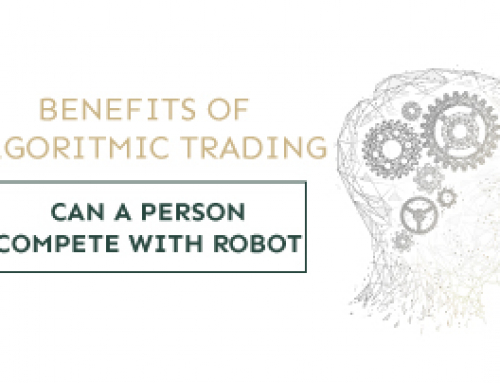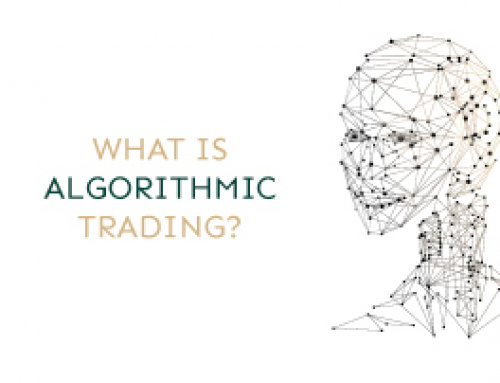Blockchain is literally a chain of blocks. We are talking about blocks of information, built according to certain rules. Each block is related to others not only by numbering. It contains the hash of the previous block of information as well as its own. Making any changes to the stored in block information will affect its hash sum, which will affect the next block. Thus, making any changes to the blockchain is a complex process, (especially since they are all distributed over many computers on the network).
For the first time, the term “Blockchain”, and the technology, was used in 2008. In this year the Bitcoin was created (the world’s first cryptocurrency). That is why the blockchain is identified with cryptocurrencies. In fact, distributed database technology can be used in many different fields.
Important areas of use of blockchain technology:
- financial sector;
- logistics;
- data storage;
- cybersecurity;
- public administration and others.
Let’s take a closer look at some of the Blockchain applications.
Smart contracts
A smart contract is a special algorithm that is used to provide information support for the fact of ownership. In other words, a smart contract is a computer code or protocol by which information (for example, the terms of a contract) is introduced into a block. As soon as the terms of the contract are fulfilled, the system automatically carries out the transaction.
For the first time, the essence of smart contracts was described back in 1996, but then there was no necessary knowledge for practical implementation. In practice, the implementation of smart contracts became possible with the creation of the Ethereum cryptocurrency. Subsequently, other protocols have emerged that support the use of smart contracts. With their help, you can exchange digital assets, real estate, and other goods.
Benefits of smart contracts:
- security – information is encrypted and stored in a distributed registry;
- there are no intermediaries between the two parties to the transaction – you can save money;
- independence from outside specialists (lawyers, financiers);
- reliability;
- efficiency.
There are also disadvantages – the lack of a legal framework, the complexity of organizing the interaction of the digital and real worlds, the impossibility of making changes or refusal.
Control of the movement of goods
Delivery of goods is one of the most conservative areas of logistics services. Dozens of different authorities (controlling, accompanying, permitting) interact, complicating the process and making it more expensive. Blockchain technology makes it possible to simplify the control of the movement of goods, to reduce the number of participants in the process.
Other benefits:
- reduction of document circulation;
- transparency of all operations;
- reduction in the number of intermediaries;
- real-time control at any stage of the route;
- quality control – it is almost impossible to falsify the labeling, enter inaccurate data on the composition, date of issue.
The development and implementation of blockchain technology in the field of logistics are carried out by world-famous companies – Maersk, Alibaba, Amazon, FedEx.
Among the disadvantages are the complexity of implementation in real business processes, the conservatism of the system.
Data storage
Cloud storage is an up-to-date way of storing data. This is a centralized method, data is stored on servers located in different countries of the world, managed by a specific owner. However, security and privacy concerns remain unresolved.
The use of blockchain technology significantly increases the security of data storage. Encryption protects information, without a key it is impossible to gain access. The ability to recover data is also simplified.
Advantages of blockchain in the field of information storage:
- decentralization;
- safety;
- storage cost is lower.
Insurance industry
The insurance system also belongs to the category of closed and conservative spheres of activity. Non-transparency of decision-making on insurance payments, mechanisms for determining insured events that are obscure for a common user, and other risks. This is just a small list of problems in the insurance industry that blockchain technology will help solve.
Among the main advantages of the decentralized database technology in the insurance system are:
- automation of insurance payments through the use of smart contracts;
- improving the quality of service;
- decentralization of the system;
- the processing time for requests is reduced;
- rejection of a chain of intermediaries, as a result, a decrease in the final cost for the consumer and an increase in the quality of services;
- the insurance industry will become more open and accessible.
There are startups that use blockchain technology in insurance against various cases – flight delays, hurricanes, crop failure. New technologies are also used for health insurance, antiques, cryptocurrency wallets, and other areas with a high degree of risk.
Examples of startups are VouchForMe, Teambrella, PAL Network, Medishares, Etherisc, and others.
Voting system
Decentralization of the voting system is a very important area. The use of blockchain will help get rid of falsification in the counting of votes in the voting system in any field of activity – from politics to sports.
There are both opponents and supporters of using the blockchain for voting and counting of votes. Arguments against a decentralized database:
- risks of hacker attacks, as a result, interference in the system;
- the complexity of the process audit system;
- lack of a compensation system – if the elections are compromised, they will have to be held anew.
Blockchain supporters bring their arguments – improving the quality of the voting procedure, reducing the likelihood of fraud on the part of the participants in the process.
It should be noted that the implementation of this task in practice is very difficult. It is necessary not only to consider the vote of each participant but also to ensure the admission of observers to the counting, which is due to the basic principles of the voting process.
In practice, blockchain technologies were used to organize online voting in the fall of 2020 at the conventions of leading US political parties, in other cases.
Copyright
Copyright protection is the scourge of the modern entertainment industry. Representatives of the cinema and music are especially affected by such violations. With the help of blockchain technologies, you can provide reliable copyright protection. In addition, this technology improves the security of information storage. The procedure for transferring copyright from the creators of a work of art to the buyer is greatly simplified.
To protect copyright, the protected object is hashed, the data is entered into a block. Authentication – The hashing procedure is repeated. If the hash sums match, the security object was verified successfully.
There are already several services for copyright protection using blockchain technology:
- io;
- PatentBot;
- Proof of Existance.
Internet of things
Apart from cryptocurrencies, the IoT is one of the main directions for the further development of blockchain technology. In the field of the Internet of Things, blockchain can provide a solution to security issues, system scaling. The problem lies in the active development of IoT, respectively, the costs of data transfer between devices and management costs are growing.
The big problem is the confidentiality of user data. Expanding the reach of the Internet of Things increases the risk of personal data loss.
The decentralization that blockchain provides will help get rid of these IoT problems. Main advantages:
- safety;
- protection against burglary;
- cost reduction;
- process automation;
- data verification using a distributed ledger.
In addition to smart appliances, blockchain technology will help optimize energy costs. This direction is actively developing in different countries.
Identity identification
Identity verification is one of the areas of use of the blockchain. Decentralized databases will help get rid of the leakage of personal information, provide secure storage and verification of information.
Blockchain technology excludes the direct transfer of information. Data exchange and protection occur using cryptographic methods, in particular hashing. A digital signature can also be used to give legal effect to the document.
Blockchain enables zero-knowledge proofs. In this case, you can identify the person or verify the authenticity of the document without disclosing any information.
The advantages of blockchain in the field of personal identification are control of personal data and high reliability of the system. Disadvantages – synthetic theft of personal information in order to create a new identity.
International payment system
The financial services industry uses a centralized banking transaction model. The use of blockchain technology will solve a number of existing problems – the cost of a transfer, vulnerability, and the duration of the operation.
Blockchain allows you to get rid of intermediaries when transferring funds. Savings also occur on the conversion and commissions of different participants in the procedure. The transfer of payment occurs in real-time, in contrast to the current state of affairs when banks spend several days processing transactions. It is almost impossible to hack a decentralized system, so the security of a payment system using blockchain is much higher.
Government services
Blockchain technology has enormous potential for use in the public sector. And this is not only about the exchange of information between different institutions of power. Important areas are health care, land management, government document management.
Blockchain in the public sector will significantly simplify the receipt of various certificates, registration of private entrepreneurship, registration of companies. Moreover, services will become cheaper, because there are various intermediaries who charge commissions and fees for their work.
At the same time, the main requirement for blockchain in the public environment is the stability of the system and the ability to work under severe stress.
Blockchain technologies in the public sector will help defeat corruption. This is also a strong case for decentralized databases.
Other Directions
Other areas of blockchain use include travel services, education, cloud computing, insurance, gun control among the population, inheritance, and notaries, and charitable foundations.






Leave A Comment